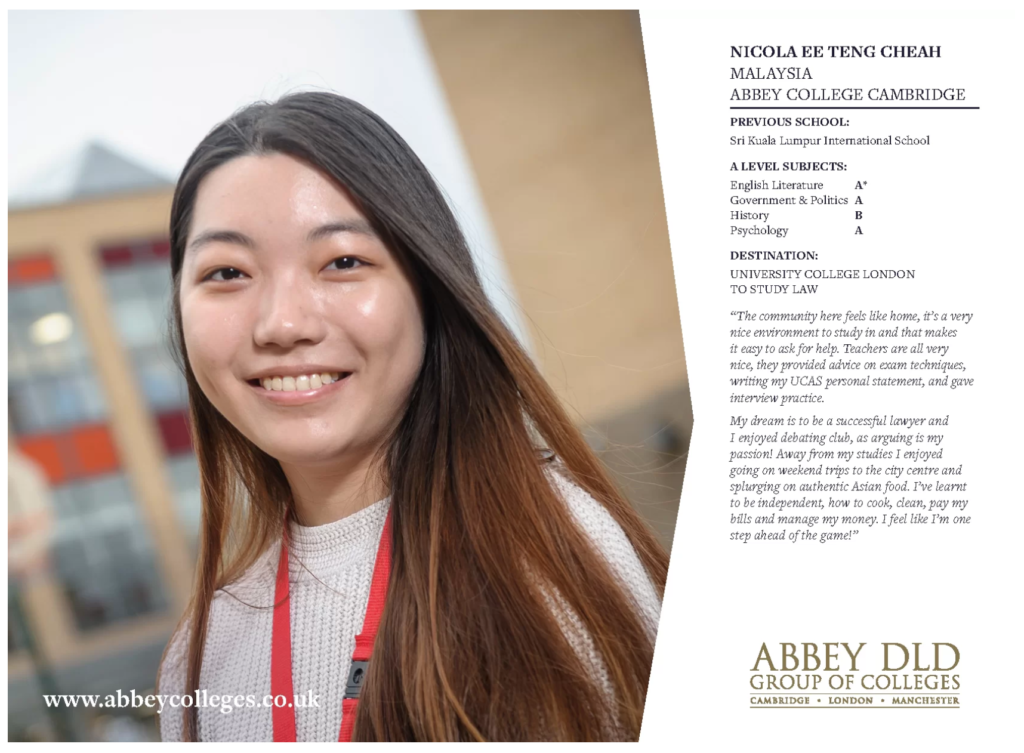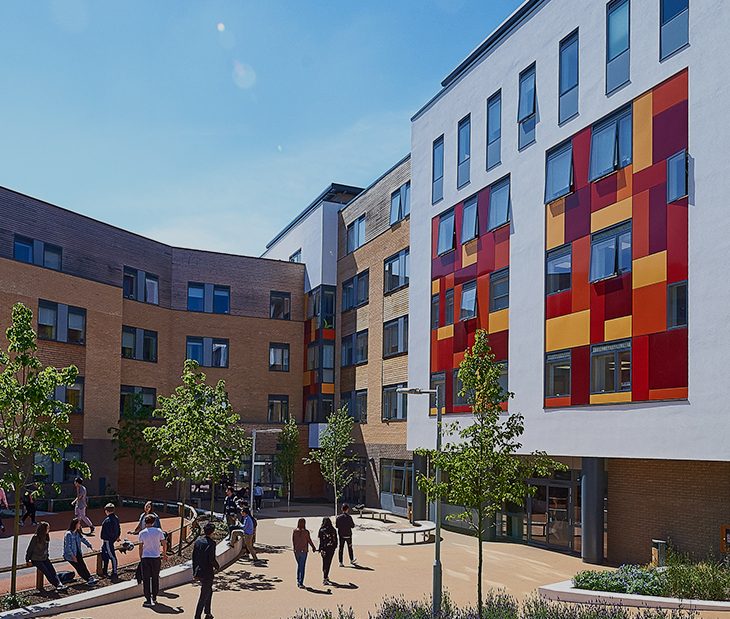Educational Journeys: A Comparative Look at Malaysia and the UK’s Education Systems.
19th July 24

In this blog, we will explore the key features of the Malaysian and UK education systems. By examining these systems side by side, we aim to gain a deeper understanding of the diverse approaches to education and their implications for students’ development and success.
School System in Malaysia
The educational framework in Malaysia follows a structured format of 6+3+2+2, which encompasses primary, lower secondary, upper secondary, and pre-university education stages. Since 2003, primary education spanning six years has been mandated.
Teaching predominantly occurs in Malay, although institutions offer instruction in Chinese and Tamil languages at both primary and secondary levels.
The Malaysian education system emphasises holistic development through various initiatives such as co-curricular activities, character education programs, and the integration of 21st-century skills into the curriculum. These efforts are geared towards equipping students with the knowledge, skills, and values they need to succeed not only in academics but also in their careers and personal lives.
School System in the UK
The education system in the United Kingdom encompasses several distinct stages tailored to different age groups and educational needs. Beginning with the Early Years Foundation Stage (EYFS), which caters to children aged 0-5, the focus is on fostering early childhood development through play and structured activities.
Primary education follows, covering ages 5-11, with Key Stage 1 and Key Stage 2 emphasising core subjects like English, mathematics, and science, alongside foundation subjects such as history and art.
Secondary education, spanning ages 11-16, encompasses Key Stage 3 and Key Stage 4, where students prepare for the General Certificate of Secondary Education (GCSE) examinations, which serve as important qualifications assessing their knowledge and skills across various subjects. GCSEs play a crucial role in shaping students’ academic pathways, influencing future educational opportunities, including progression to further education, employment, or higher education.
Further Education (FE) provides post-16 pathways, including A-levels, vocational qualifications, and apprenticeships, preparing students for higher education or employment. Courses can be studied in the Sixth Form of a Secondary School or in a stand alone Sixth Form College.
Finally, Higher Education caters to those aged 18 and above, offering undergraduate and postgraduate degrees across various disciplines in universities and colleges.
Throughout each stage, the UK education system emphasises holistic development, critical thinking, and readiness for future endeavours, ensuring students are equipped for success in both academia and life beyond the classroom.

Pre-Primary Education in Malaysia
In Malaysia, pre-primary education is accessible, although it is not obligatory. Children aged four to six receive education through kindergartens, which are administered by government agencies, voluntary organisations, and private entities.
Pre-Primary Education in the UK
Pre-primary education in the United Kingdom gives children up to five a taste of a school-like environment before they start primary school. Most children attend part-time and during term-time only.
Primary Education in Malaysia
Primary education in Malaysia lasts six years (Standard 1 to Standard 6) for children aged 7 to 12. It includes national, Chinese, Tamil, and Islamic religious schools. The curriculum, guided by the Ministry of Education, emphasises core subjects like Malay, English, mathematics, and Islamic or moral studies. Additional subjects such as Chinese, Tamil, local studies, and citizenship education are also taught. The new KSSR (Kurikulum Standard Sekolah Rendah) curriculum, introduced in 2014, prioritises critical thinking and ICT skills. The Primary School Achievement Test (UPSR) at the end of year six assesses proficiency in Malay, English, mathematics and science.
Primary Education in the UK
Primary education consists of Reception, Key Stage 1 and Key Stage 2. Primary education in the UK typically begins at the age of four or five and lasts for seven years, from Reception class to Year 6. The curriculum is guided by the Department for Education and includes core subjects such as English, mathematics, science, and physical education, as well as foundation subjects like history, geography, art, and music.
Primary education in the UK aims to develop children’s literacy and numeracy skills, as well as their critical thinking, creativity, and social skills. Assessments are carried out periodically throughout the primary years, with standardised tests known as Key Stage 1 (KS1) and Key Stage 2 (KS2) assessments taken at the end of Years 2 and 6 respectively, although only Key Stage 2 tests are mandatory.

At the end of primary education, children typically transition to secondary school, where they continue their education until the age of 16 or 18, depending on their choices and pathways.
British vs Malaysian Education System Comparison Table
Aspect | Malaysian Education System | Age Range (Malaysia) | UK Education System | Age Range (UK) |
Structure | 6+3+2+2: Primary (7-12) | Primary: 7-12 Years | Early Years Foundation Stage, Primary (4-11), Secondary (11-16), Further Education, Higher Education | Early Years: 0-5 Years |
Medium of Instruction | Malay (with English for Mathematics and Science in the past, now primarily Malay) | – | English | – |
Pre-Primary Education | Available, not obligatory | – | Available, before primary school | Upto 5 Years Old |
Primary Education | 6 years, includes national, Chinese, Tamil, Islamic schools | 7 – 12 Years | 7 years, core subjects include English, mathematics, science | 4-11 Years |
Secondary Education | 5 years, lower secondary (13-15), upper secondary (15-17) | Lower Secondary: 13-15 Years Upper Secondary: 15-17 Years | 5 years, lower secondary (Years 7-9), upper secondary (Years 10-11) | Secondary: 11- 16 Years |
Language Options | Malay, English, Chinese, Tamil, indigenous languages | – | English, additional languages offered as subjects | – |
Assessment | UPSR, PT3, SPM (for upper secondary) | – | Key Stage 1, Key Stage 2, GCSEs | – |
Post-Secondary Options | STPM, Matriculation (science stream), vocational education | STPM: 17-19 Years | A-levels, BTEC qualifications, Pre-UniversityFoundation programmes | 16-18 Years or 16-19 Years |
The Abbey DLD Group of Colleges (ADLD) consists of three independent boarding schools located in Cambridge, London, and Manchester, offering a wide range of academic study programmes.
At Abbey DLD we strive to achieve the highest academic standards whilst providing a welcoming, safe, high-quality learning and boarding experience for students from around the world. Our aim is to help our students achieve the academic success needed to progress to the UK and the world’s top universities, whilst also developing the personal skills and qualities to succeed at university and beyond.
We offer GCSEs, BTECs, A Levels and International Foundation Programmes to give our British and International students access to UK and international universities.
Secondary Education in Malaysia
After finishing primary education, students progress to secondary-level education, spanning an additional five years. This is segmented into lower secondary (Form I to III) and upper secondary (Form IV and V). Secondary schools predominantly use Malay as the medium of instruction, while English serves as the second language. Additionally, Chinese, Tamil, and indigenous languages are provided as additional subjects.
Secondary Education in the UK
Secondary education in the UK typically spans five years, divided into lower secondary (Years 7-9) and upper secondary (Years 10-11). The curriculum covers a wide range of subjects, including English, mathematics, science, humanities, languages, and the arts. Students work towards qualifications such as GCSEs during upper secondary. English is the primary medium of instruction, with other languages offered as additional subjects. Overall, UK secondary education aims to develop critical thinking, independent learning, and essential skills for future endeavours.
Lower Secondary in Malaysia
Lower secondary education, covering ages 13 to 15 (Forms I to III), sees pupils from national primary schools entering Form I directly. Meanwhile, those from Chinese and Tamil primary schools typically undergo a transition year, known as the ‘remove class’, focusing on intensive Malay language tuition. However, high achievers in the UPSR examination may bypass this preparatory year.
Subjects at this level include arts education, English, geography, history, Islamic or moral education, living skills, Malay, mathematics, music, physical and health education, science, and an additional language (Chinese, Tamil, Arabic, or an indigenous language).

At the end of the third year, the Pentaksiran Tingkatan 3 (PT3) examination is taken, comprising written tests, case studies or projects in history and geography, and written and oral assessments in Malay and English. Grading, ranging from A to F, is conducted by schools based on materials provided by the Examinations Syndicate.
Lower Secondary in the UK
In the United Kingdom, lower secondary education, typically for students aged 11 to 14, is a crucial stage in their academic journey. At this level, students in Year 7 to Year 9 follow a diverse curriculum aimed at providing a broad foundation of knowledge and skills.
In Year 7, students transition from primary to secondary school, where they consolidate their learning from primary education while also being introduced to new subjects and concepts. Throughout Years 7 to 9, students study core subjects such as English, mathematics, science, history, geography, and languages (often including French, Spanish, or German). Additionally, they may explore subjects like art, music, design and technology, computing, physical education, and personal, social, and health education (PSHE).
While English remains the primary language of instruction, schools may offer additional language options for students to study, broadening their linguistic abilities and cultural understanding.
Assessment methods during lower secondary education vary, but they often include a combination of exams, coursework, and ongoing teacher assessments to track progress and identify areas for improvement.
Upper Secondary in Malaysia
In Malaysia, upper secondary education typically spans two years (Forms IV and V), catering to students aged 15 to 17.
Admission to upper secondary schools is contingent upon performance in the PT3 (or PMR before 2014). Generally, those with the highest grades enter the academic stream, while others may choose the technical or vocational streams.
Core subjects at this level include Malay, history, English, Islamic studies/moral education, and mathematics for students across all streams. National examinations are mandatory for these subjects, with a variety of elective subjects available based on student preferences.
Upon completion of Form V, students undertake the Sijil Pelajaran Malaysia (SPM), or Malaysian Certificate of Education. Administered by the Examination Syndicate of the Ministry of Education, this exam may include the UCLES English language O-level examination as part of the school curriculum.
Students typically take between 8 and 10 subjects, receiving individual grades for each. A pass grade in the Malay language is necessary to obtain the SPM certificate. Additionally, a pass in history has been required since 2013, and the English language became a compulsory pass from 2016 onward.
Upper Secondary in the UK
In the United Kingdom, upper secondary education, commonly referred to as Key Stage 4, typically covers the ages of 14 to 16 and corresponds to Years 10 and 11 of secondary school. During this phase, students work towards obtaining qualifications such as the General Certificate of Secondary Education (GCSE) or equivalent qualifications.
Admission to upper secondary education is not based on a specific examination but rather on the completion of lower secondary education. Students have the option to pursue a variety of subjects based on their interests and career aspirations.
Core subjects during upper secondary education in the UK typically include English, mathematics, science, and a range of optional subjects such as history, geography, languages, art, design and technology, and physical education. While there are no mandatory national examinations for all subjects, students are assessed through a combination of coursework and final examinations.
The culmination of upper secondary education in the UK is the attainment of GCSE qualifications. Students typically take between 8 and 10 subjects, with grades awarded individually for each subject. Achieving a pass grade in English and mathematics is often considered essential for progression to further education or employment.
After Secondary School in Malaysia
Following the SPM, students attending public secondary schools have the option to pursue the Sijil Tinggi Persekolahan Malaysia (STPM) examinations or enrol in the Matriculation programme.
· Sixth Form
Sixth form education spans two years and admission is determined by performance in the SPM examinations.
Throughout the two-year study period, students undertake the Sijil Tinggi Persekolahan Malaysia (STPM) examinations, overseen by the Malaysian Examinations Council (Majlis Peperiksaan Malaysia). Typically, students opt for three or four subjects, although they can take up to five. The choice of subjects is flexible.
University admission relies on General Studies and three additional subjects. Examinations yield principal passes and subsidiary passes, with students receiving the certificate upon achieving at least one subsidiary pass.
· Matriculation
Matriculation Colleges offer the Matriculation programme (Matrikulasi), aiming to equip SPM graduates for degree courses in science, technology, and professional fields at both public and private universities. The programme maintains a uniform syllabus and evaluation methods for all students.
Two options are available:
- One-year programme: Program Matrikulasi Satu Tahun (PST)
- Two-year programme: Program Matrikulasi Dua Tahun (PDT)
Three Stream are available in 1-year Programme, and these are:
- Accounting
- Engineering
- Science
The two-year programme (PDT) is only offered in the science stream.

Do You know:
Every year Abbey DLD Students achieve outstanding results and move on to join some of the world’s most prestigious and highly-ranked universities. In 2023, 41% of our A Level students and 38% of our Foundation students progressed to Russell Group Universities, and 14 of our students progressed to study at Oxbridge Colleges or Medical School.
After Secondary School in the UK
In the United Kingdom, students have a range of options after completing secondary school, including traditional academic routes, vocational qualifications, and pre-university foundation programmes.
-
Sixth Form Education
Sixth form education spans two years and offers traditional academic pathways such as A-levels and International Baccalaureate (IB). Students typically study three or four subjects of their choice, ranging from sciences, humanities, languages, and arts. A-levels are widely recognised for university admission and employment opportunities.
-
BTEC Qualifications
Alongside A-levels, students can pursue BTEC qualifications, providing practical, work-related learning across various sectors such as business, media, engineering, health and social care, and information technology. BTEC courses are available at different levels and are assessed through coursework and practical assessments.
-
Pre-University Foundation Programme
Pre-University Foundation programmes are designed to prepare students for entry into undergraduate degree courses. These programmes, lasting one year, offer intensive academic study in subjects relevant to the chosen degree pathway. They aim to develop students’ academic skills, subject knowledge, and English language proficiency for successful progression to undergraduate study.
Whether students choose A-levels, BTECs, or Pre-University Foundation programmes, the UK education system provides diverse pathways for further education and career advancement after secondary school. These pathways cater to students’ interests, academic abilities, and career aspirations, ensuring they are well-prepared for their future endeavours.
Conclusion:
In conclusion, the Malaysian and UK education systems exhibit both similarities and differences in their structures, approaches, and focus areas. Both systems emphasise the importance of foundational education, providing a structured framework for students to develop key skills and knowledge from early childhood through to post-secondary options.
While the Malaysian system follows a 6+3+2+2 structure, encompassing primary, lower secondary, upper secondary, and pre-university stages, the UK system adopts a more segmented approach with stages such as the Early Years Foundation Stage, Primary, Secondary, Further Education, and Higher Education.
Assessment methods differ, with Malaysia utilising examinations like UPSR, PT3, and SPM, whereas the UK employs standardised tests such as Key Stage 1, Key Stage 2, and GCSEs.
In terms of post-secondary options, Malaysia provides pathways like STPM, Matriculation, and vocational education, catering to diverse academic and career interests. Conversely, the UK offers routes like A-levels, BTEC qualifications, and Pre-University Foundation programmes, emphasising preparation for higher education or employment.
Despite these differences, both systems share a common goal of fostering holistic development, critical thinking, and essential skills among students, ensuring they are well-prepared for success in academia and beyond. The comparison highlights the importance of understanding the unique strengths and challenges of each system while also appreciating the diversity of approaches to education on a global scale.
Please note that our three colleges, each with its own unique character, all share a common goal: to deliver outstanding educational and residential experiences for students aged 13 to 21. We offer GCSE, A Level, BTEC and International Foundation Programme courses. We do not provide university-level undergraduate or postgraduate education.
Blog Author

Meerah Sasy
Regional Manager, Asia
Tel: +6012 804 7025
Get in touch today:
Since 1931, the Abbey DLD Group of Colleges has been synonymous with high-quality education, top university destinations, and enriching academic and pastoral experiences. Abbey DLD students graduate equipped with the skills to progress in their university studies and future careers, with friends from all around the world, and having made memories to remember for a lifetime.
Want to learn more about studying at the Abbey DLD Group of Colleges? Simply complete the form below and one of our admissions advisors will be in touch with you shortly.





